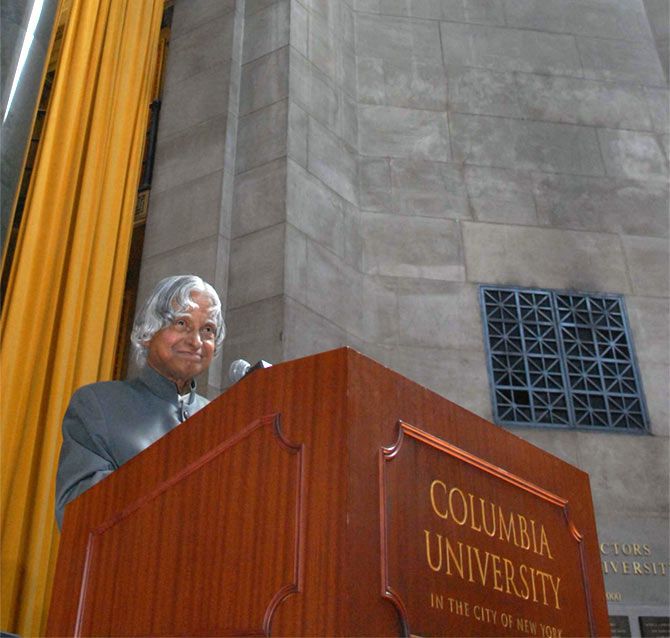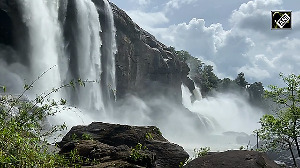'Let us celebrate the fact of his having lived amongst us, and our having lived in his time.'
B S Raghavan, the distinguished civil servant, remembers President Kalam.
 India will not see the like of him for a long, long time.
India will not see the like of him for a long, long time.
Abdul Kalam, the dispenser of dreams of exploiting India's vast potential, and reviving its past glory, dies the way he would have loved: Among students, and the young, whom he set aglow with his passion, enthusiasm and energy.
The picture of nobility and humility, a harmonious blend of grace and greatness, standing out for his simplicity and frugality in the environs of Rashtrapati Bhavan which still prides itself on its out-of-place ornamental facade and colonial opulence, he was also a quintesential, and, indeed, a unique, human being, exuding instant warmth and establishing immediate rapport in whatever company he found himself to be.
I will be justified in calling him a resplendent role model, but I refrain, for the plain reason that he would not be accepted, nor acceptable, as one: He was so patently out of sync with the rising new culture of ostentation and accumulation of personal wealth.
He has gone after living a full life, and full of honours. Nihil quod tetigit, non ornavit (Whatever he touched, he adorned).
Let us celebrate the fact of his having lived amongst us, and our having lived in his time.
Our salutations to you, Abdul Kalam! Long may your memory live!
A gnawing, nagging question: At the age of 84 years, he is made to drive in a car 110 kilometres on a tortuously winding hill road from 2.30 pm when he arrived at the Guwahati airport and 5.45 pm when he reached the IIM Guest House.
Couldn't he, an ex-President, a People's President, ex-Supreme Commander of the Armed Forces, have been taken in a helicopter?
President A P J Abdul Kalam, at Columbia University, New York. Photograph: Paresh Gandhi/Rediff.com








